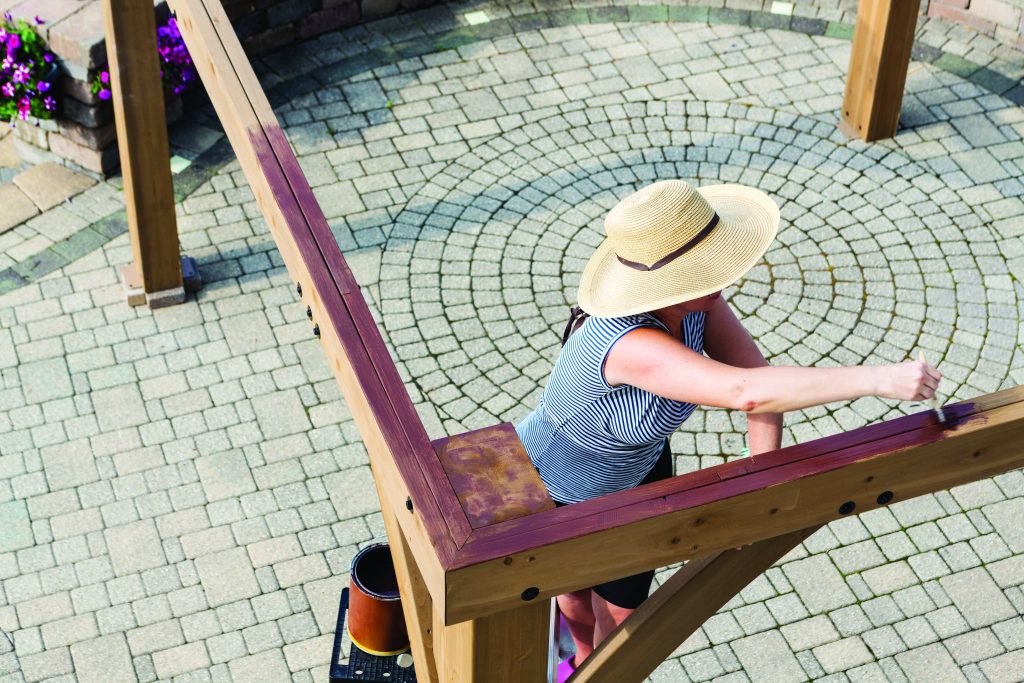
Extension cords and power tools
• Check power tools and electrical cords to make sure they are in good condition. Power tools should be designed for outdoor use.
• Extension cords should be designed for outdoor use. They are thicker, more durable and have features for preventing moisture damage.
• Use three-wire extension cords with three-pronged plugs.
• Look for the amperage rating of the extension cord to make sure it will meet the power demand of the tool.
• Do not plug one extension cord into another. Use the proper length for the job.
• Never leave an open extension cord that is plugged into an outlet. Unplug the cord when you are finished using it.
Ladders
• Use fiberglass or wood ladders when working around overhead power lines or electrical sources. Metal ladders conduct electricity and can be fatal if the ladder comes into contact with electricity.
• If you must use metal, carefully check the location of all overhead wires to avoid contact.
• Lower the ladder when carrying it or moving it.
• Never work on a windy day, as a gust of wind could shift the ladder into an overhead wire.
• When placing the ladder on the ground, make sure the distance to the nearest overhead wire is at least twice the length of the ladder.
• Make sure the ladder is placed on solid, level ground to prevent sliding.
— Consumer Product Safety Commission, Central Alabama Electric Cooperative



